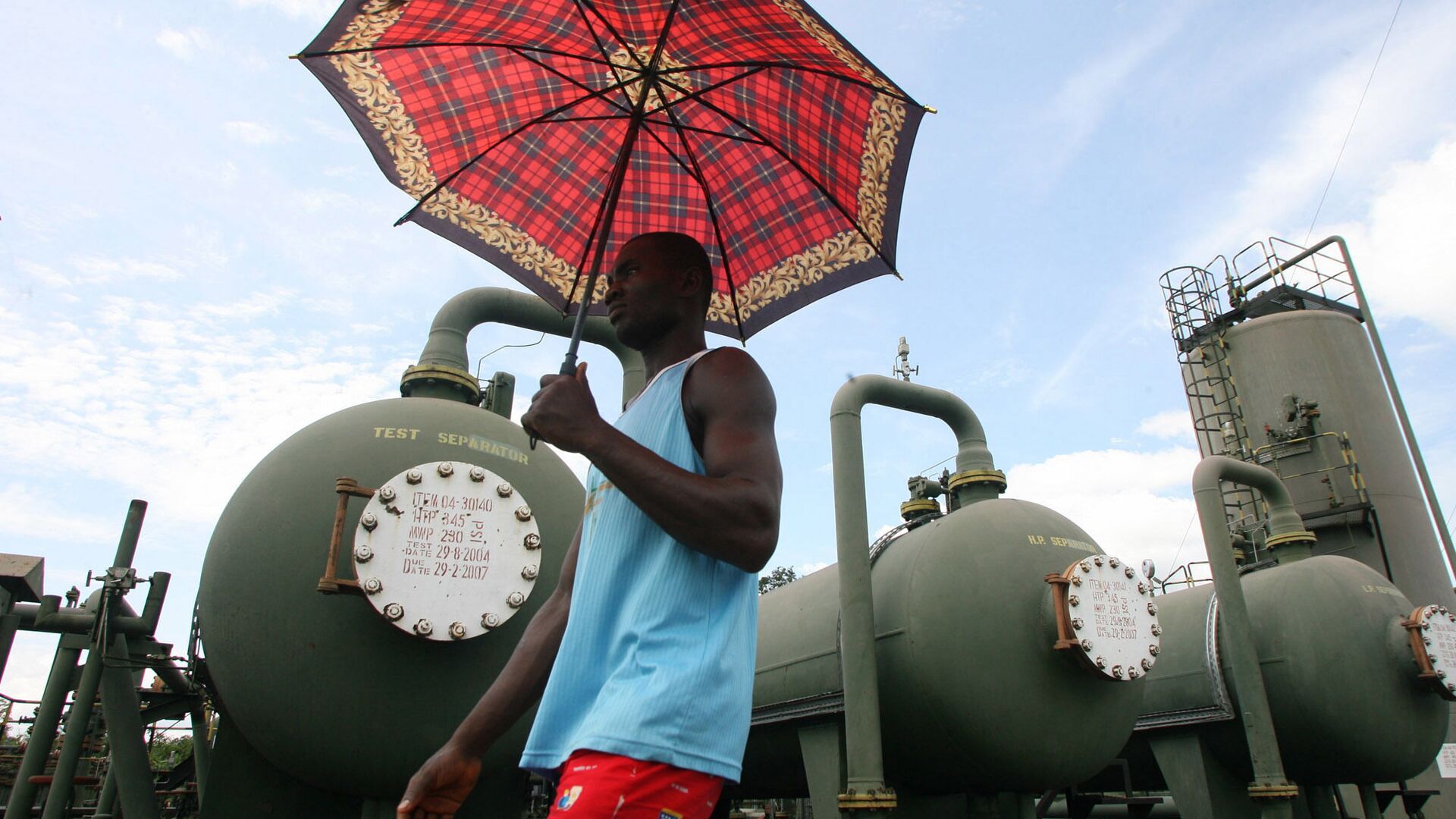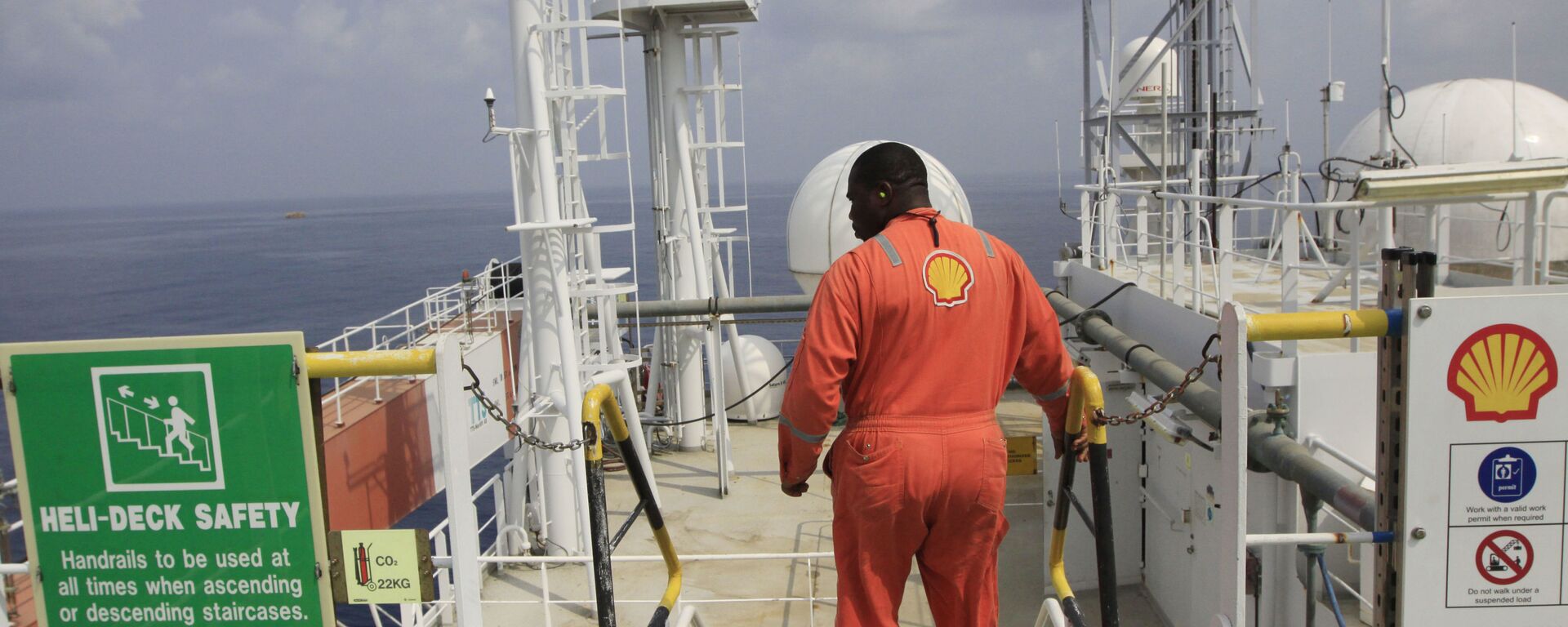https://sputnikglobe.com/20220423/over-100-people-burnt-beyond-recognition-following-massive-blast-at-illegal-nigerian-oil-refinery-1094999017.html
Over 100 People ‘Burnt Beyond Recognition’ Following Massive Blast at Illegal Nigerian Oil Refinery
Over 100 People ‘Burnt Beyond Recognition’ Following Massive Blast at Illegal Nigerian Oil Refinery
Sputnik International
Nigeria is one of world’s leading producers of crude oil. Recent decades have seen the emergence of small illegal refineries, many operated by criminal... 23.04.2022, Sputnik International
2022-04-23T19:07+0000
2022-04-23T19:07+0000
2022-04-23T19:22+0000
nigeria
refinery
oil
https://cdn1.img.sputnikglobe.com/img/107701/33/1077013384_0:104:2000:1229_1920x0_80_0_0_1e5b2edefa709e74dc94a50f624b8929.jpg
Over 100 people are feared dead following an explosion in the Nigerian state of Rivers in the country’s south, Goodluck Opiah, state commissioner for petroleum resources, has told local media.Declan Emelumba, Commissioner for Information from the adjacent state of Imo, said an investigation into the cause of the incident, as well as damage, injuries and fatalities was underway.Imo State Police Command spokesman Michael Abattam said all those killed were “illegal operators.”“A lot of people died,” he said.The fire which followed the explosion spread to properties nearby after engulfing a pair of fuel storage areas.With a daily output of over 1.9 million barrels of oil per day, Nigeria is the world’s 15th largest producer of oil, and the largest in Africa, sending the majority of its supplies to Asian markets.The operation of illegal refineries is common in the country, with operators setting up refineries in remote areas. Oil is sourced from pipelines owned by major foreign energy giants. In addition to the danger of deadly accidents, the practice of illegal oil refining has led to the pollution of local waterways, farmland and lagoons.The Nigerian government occasionally deploys troops to try to get a handle on the situation, with the military destroying the illegal refineries and arresting their operators.
https://sputnikglobe.com/20220418/back-to-africa-europe-ramps-up-search-for-alternatives-to-russian-gas-south-of-the-mediterranean-1094865103.html
nigeria
Sputnik International
feedback@sputniknews.com
+74956456601
MIA „Rossiya Segodnya“
2022
News
en_EN
Sputnik International
feedback@sputniknews.com
+74956456601
MIA „Rossiya Segodnya“
Sputnik International
feedback@sputniknews.com
+74956456601
MIA „Rossiya Segodnya“
nigeria, refinery, oil
Over 100 People ‘Burnt Beyond Recognition’ Following Massive Blast at Illegal Nigerian Oil Refinery
19:07 GMT 23.04.2022 (Updated: 19:22 GMT 23.04.2022) Nigeria is one of world’s leading producers of crude oil. Recent decades have seen the emergence of small illegal refineries, many operated by criminal elements, or by shady businessmen seeking to avoid taxation and regulation.
Over 100 people are feared dead following an explosion in the Nigerian state of Rivers in the country’s south, Goodluck Opiah, state commissioner for petroleum resources, has told local media.
“The fire outbreak occurred at an illegal bunkering site and it affected over 100 people who were burnt beyond recognition,” Opiah
said.
Declan Emelumba, Commissioner for Information from the adjacent state of Imo, said an investigation into the cause of the incident, as well as damage, injuries and fatalities was underway.
Imo State Police Command spokesman Michael Abattam said all those killed were “illegal operators.”
“A lot of people died,” he said.
The fire which followed the explosion spread to properties nearby after engulfing a pair of fuel storage areas.
With a daily output of over 1.9 million barrels of oil per day, Nigeria is the world’s 15th largest producer of oil, and the largest in Africa, sending the majority of its supplies to Asian markets.
The operation of illegal refineries is common in the country, with operators setting up refineries in remote areas. Oil is sourced from pipelines owned by major foreign energy giants. In addition to the danger of deadly accidents, the practice of illegal oil refining has led to the pollution of local waterways, farmland and lagoons.
The Nigerian government
occasionally deploys troops to try to get a handle on the situation, with the military destroying the illegal refineries and arresting their operators.


